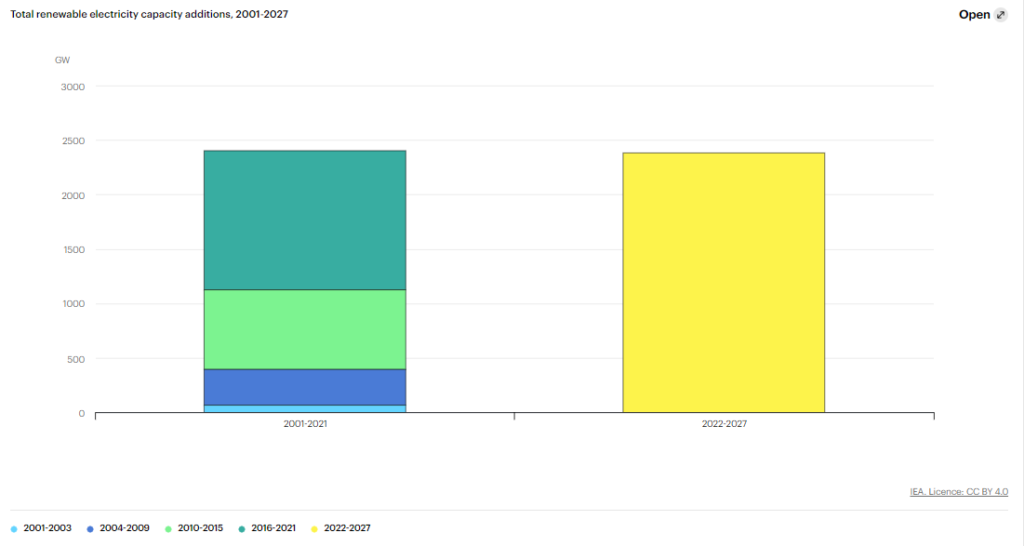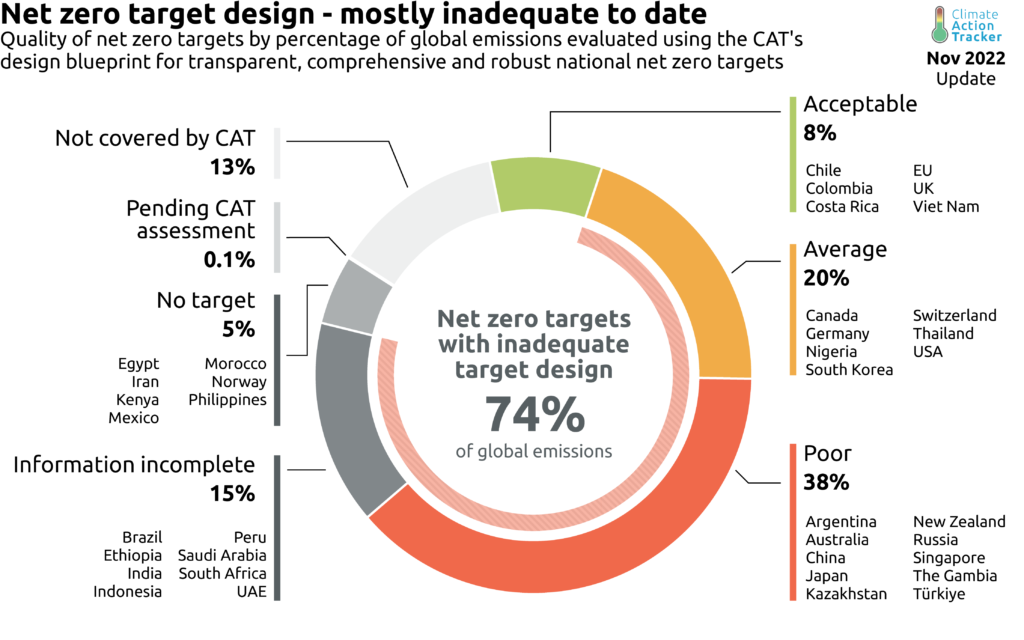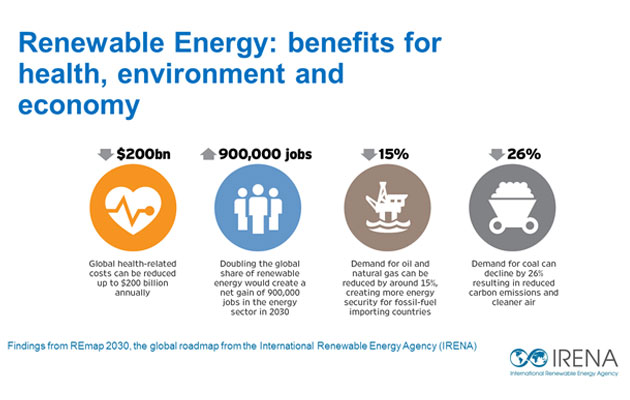Why Is Renewable Energy Important?
Bell Ka Pang / Shutterstock.com
02 February 2023 – by Eric Koons
Why Is Renewable Energy Important for the Future? – Benefits of Renewable Energy
Renewable energy is an important part of many regional, national and global plans for future-proofing energy grids and combatting climate change.
Part of the problem is that the world’s infrastructure largely depends on fossil fuels, with electricity generation and transport as two of the leading causes. However, renewables can replace fossil fuels and are already increasing their share in the global energy mix.

Between 2001 and 2021, the world installed almost 2,500 GW of renewable energy, and the International Energy Agency (IEA) expects this number to double by 2027. While electrification rates rise worldwide and the demand for energy follows, renewables are becoming an important energy source. Renewable energy sources are becoming a favoured power source for communities looking to build resilience.
Renewable Energy Helps Slow Climate Change
The latest Intergovernmental Panel on Climate Change (IPCC) report highlights how important it is to reduce the production of carbon dioxide emissions drastically. With this change, it will be possible to mitigate the scale and impacts of climate change.
While manufacturers work towards developing an all-electric automotive market, the renewable energy industry has the largest potential to reduce air pollution and emissions. Shifting away from highly polluting fossil fuels towards low-carbon renewables reduces greenhouse gas emissions and creates multiple other benefits.
Why Clean Energy is Important
The potential to reduce emissions through a clean energy transition is clear and present both locally and globally. For example, Susan Tierney and Lori Bird of the World Resources Institute illustrate this by looking at the United States. They refer to a National Renewable Energy Laboratory study that found “generating 35% of electricity using wind and solar in the western U.S. would reduce [the region’s] CO2 emissions by 25-45%”.
These numbers showcase why climate activists and the IPCC recommend a much faster transition to renewable energy and are pushing for more ambitious net-zero targets for carbon emissions.
In some cases, technological solutions, such as carbon capture, are also being promoted to assist the transition. However, these systems don’t reduce the need for an energy transition but help absorb excess carbon in the atmosphere.
Reducing overall carbon dioxide production will go a long way in slowing climate change, and renewable energy can make a significant impact.
Renewable Energy Can Reduce The Impacts of Climate Change
The impact of climate change is clear. In 2022, the Pakistan floods showed just how destructive climate change can be, killing over 17,000 people, displacing 33 million and causing close to USD 17 billion in damage.
What was witnessed in Pakistan is happening worldwide at different scales, and this will only increase over time. For example, the United States has incurred USD 411 billion in climate-related damage between 2011-2021. However, renewable energy can help reduce these impacts.
“Renewable energy alone could help save USD 160 trillion in climate change costs by 2050, while an economic transition towards more environmentally friendly manufacturing could generate USD 2 trillion in opportunities.”
Vincent Diringer via Impakter
This further highlights the importance of a rapid energy transition and stimulating sustainable development. Opportunities exist to capitalise on widely available renewable energy, transport and manufacturing technologies. For example, green hydrogen is a viable energy alternative for hard-to-abate industries, like steel production.
In addition to renewable energy’s positive economic and carbon impacts, it can also improve local community health. These added benefits can help communities thrive as the world changes.
Benefits of Renewable Energy Technologies for the Countries
- Energy Security: The war in Ukraine highlights the energy insecurity tied to natural gas and other fossil fuels. Using renewable energy means tapping into local resources, which gives countries more autonomy and less reliance on foreign energy imports. As the IEA notes, energy security is one of the factors driving countries to develop renewable energy.
- Reliable, Cheap Energy: Maximising local renewables means lower overhead costs and lower energy prices for consumers. In addition, costs are typically stabler than fossil fuels, which are widely known for their volatility.
- Green Growth and Jobs: Renewable energy creates jobs. Besides the benefits listed above, renewable energy can help drive green growth and create lasting jobs for local communities. As such, renewables offer an unparalleled opportunity for resilience-building and future-proofing for countries serious about tackling climate impacts.
The Future of Decarbonisation and Climate Change
Renewable energy will be an essential component of climate action and decarbonisation. It features heavily in many nations’ plans to cut emissions, and the benefits showcase how impactful renewables are and why renewable energy is important to generate electricity and for economic development.
Implementing net-zero goals and renewable energy targets is a critical process in decarbonisation. Not only does it keep countries accountable and provide targets to strive for, but it creates a snowball effect. As more countries push for decarbonisation, other countries will inevitably follow based on the changing global sentiment.

Unfortunately, while 140 countries have, or are discussing, net-zero targets, the vast majority are less ambitious than the world needs to meet the Paris Climate Agreement’s goals to limit the worst impacts of global warming. The independent monitoring group Climate Action Tracker (CAT) notes that only six countries have what they deem “acceptable” net-zero targets.
The IPCC, International Renewable Energy Agency, United Nations and countless other leading international organisations continue to push for more robust net-zero goals and global cooperation. It is time that governments heed their recommendations and put renewable energy development at the forefront of the agenda.
by Eric Koons
Eric is a passionate environmental advocate that believes renewable energy is a key piece in meeting the world’s growing energy demands. He received an environmental science degree from the University of California and has worked to promote environmentally and socially sustainable practices since. Eric’s expertise extends across the environmental field, yet he maintains a strong focus on renewable energy. His work has been featured by leading environmental organizations, such as World Resources Institute and Hitachi ABB Power Grids.
Read more




